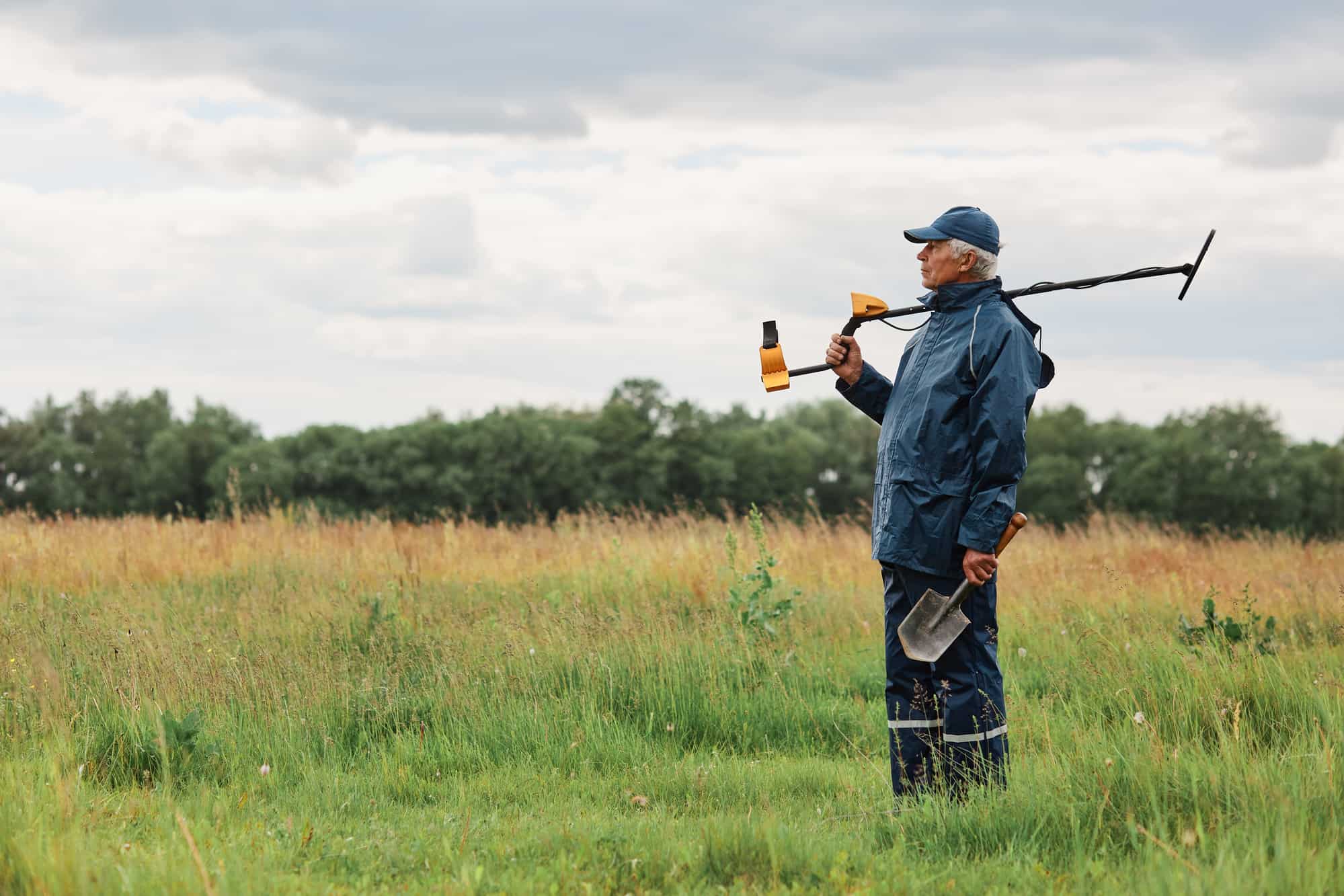There is a stigma that senior citizens only like to embark on certain activities such as sitting at the bingo hall or playing card games. Whilst these can be fun, there are plenty of exciting hobbies for the older generation to enjoy.
We all can benefit from an active lifestyle, which is why metal detecting is a great hobby for senior citizens. Let’s consider the many reasons why the older generation is turning to this hobby.
Benefits Of Detecting As A Hobby
There are plenty of reasons to get into metal detecting, here are some of the most significant for the senior citizens.
Exercise
Metal detecting is great for light cardio such as walking. Keeping your body moving becomes even more important the older you get as it can strengthen your bones, prevent osteoporosis, and arthritis.
When swinging a metal detector over a sandy beach or in a field close to home, senior citizens can even reduce their blood pressure.
For many, staying independent for as long as possible is important in your golden years. Metal detecting is a great form of exercise that doesn’t need to be strenuous. Moderate activity can still yield all the benefits of exercise, so even walking at a steady pace with a light metal detector (some can weigh as little as 2 lbs) can benefit a senior citizen.
Many of the challenges of old age come as a result of a lack of physical activity. So exercise like metal detecting can make that trip to the grocery store easier.
The fact is, metal detecting gets your heart pumping and increases blood circulation. Improved circulation benefits the entire body, pushing oxygen and nutrients around the body to help prevent cardiovascular diseases.
The concentration required to enjoy metal detecting is great for enhanced brain function. It keeps senior citizens mentally sharp and can even improve their mood.
Metal detecting involves learning how to use the tools, as well as finding the best locations. It will also require patience making it an excellent all-around workout for the brain.
Get Outdoors
For senior citizens, the importance of getting outdoors can never be underestimated. It can benefit their everyday life and increase their mental wellbeing which will help ward off the likes of dementia and cognitive decline.
Metal detecting encourages seniors to get outside and to break the daily routine. Being outside will provide a boost to Vitamin D levels, improving the immune system, but their positive experience will also boost their mental wellbeing.
Senior citizens who spend more time outdoors are also more energized, so swinging a metal detector and enjoying the sights, smells, and sounds of nature can be highly beneficial to anyone’s day to day.
Learn About History
Many senior citizens will have lived through some fascinating times, and enjoy learning about history. Because you never know what you are going to find, metal detecting can encourage many history lessons from old coins to the specific sites they choose to explore.
They can encourage senior citizens to learn more about their local area. There can be some neat discoveries waiting to be unearthed, as well as coins that set off the sensors and bring a rush of excitement every time.
These can all turn into fun discoveries for older historians.
Make New Friends
Building community becomes vital in your senior years. Metal detecting is a great way to remain social when there are limited or the same options for meeting new people.
There will be other senior citizens in your area who are looking for a new hobby, as well as people already scanning beaches and countryside for hidden spoils.
Metal detecting doesn’t have to be a solitary hobby, going as a group enhances enjoyment.
Loneliness is common in the elderly which is why it is important to try new things and take a leap, making new friends along the way.
Not only can it be a good time to connect with people of a similar age, but also grandchildren. Kids love metal detecting so it can be a fun way to share new adventures and experiences.
Social Interaction
It is no secret that social interaction is a proven way to improve happiness and lead a more fulfilled life. This is key to the long-term mental health of senior citizens.
Metal detecting can be a social activity where regular meetups can take someone to places they have never visited before. The contrast to this is isolation which is bad news for your mind and body.
It can lead to depression in anyone, particularly the elderly who can go long periods between being socially fulfilled.
Investing in metal detecting equipment can be an excellent excuse for getting out with other people and improving your social life.
Great Group Activity
We mentioned that metal detecting may have a reputation for being a solo activity, but this is only the case if you want it to be.
Anyone can organize a trip with a group of friends to scan different areas of a location. When going in pairs, you can spread out and gather around any finds when someone’s detector buzzes.
What Can You Expect To Find?
Anyone can run their metal detector over a great find, but managing expectations is key to avoiding disappointment.
For most hobbyists, finding coins and the odd piece of jewelry can be exciting, but there are instances where people have found Iron Age hoards on their first attempt.
Some of the common obstacles to finding something worthwhile include bottle caps, cans, and nails to name a few. If you research where a good spot is near you, then it can lead to more exciting discoveries.
You can even go looking for gold in certain areas, although these conditions are often in river beds and out-of-the-way locations, making them less favorable for senior citizens where mobility can be an issue.
Here are some more tips to help get you started.
Where Can You Detect?
Some of the easiest locations for a senior citizen will be the beach or a nearby field or park.
Traveling cross country to a gold mining town may be a bit of a stretch for anyone, so it is best to keep it local if you can. A garden can be a good place to start as you practice using the equipment. This is also fun for the grandkids.
Hiking trails are another fun place to go metal detecting, especially if you can go with a group of avid walkers.
Learn more about the best places to metal detect.
How to Get Started
There are so many things to consider when starting a new hobby. What detector should you buy? Where do you go metal detecting? How much does the hobby cost in terms of time and money? And what about safety concerns? Here’s how to help make your transition into this exciting pastime as smooth as possible.
Join A Local Club
For senior citizens, we recommend joining a local metal detecting club. It is easy to find details of amateur metal detectorists in the local area, and they are a great source of help when starting.
Attend Group Treasure Hunts
To stay social and join in on the excitement of an organized hunt, senior citizens can attend these hunts. With the help and advice of experts, it is a fulfilling way to meet new people.
Buy A Detector
There are plenty to choose from, with lightweight options to make them easy to carry, and options for all budgets. You don’t need to spend a lot to get a metal detector that will unveil a great hoard or just make this peaceful activity more enjoyable. See our guide to buying a metal detector.
Buy Accessories
From headphones to digging tools and scoops, there are plenty of metal detecting accessories that can make a day of detecting more enjoyable. Be sure to invest in find care and cleaning accessories so you can get a clearer look at your finds.
Buy Supplies
It isn’t just senior citizens who need to invest in supplies to make the day safe and enjoyable, we all do. Be sure to add sunscreen, a water bottle, snacks, knee pads, and a detector harness to the list of supplies that can keep you safe when metal detecting.
Learn more about how to get started metal detecting.
Final Thoughts
It doesn’t matter what age you are, metal detecting offers so many benefits to your body and mind. The importance of some of these increases the older you get, so we always recommend metal detecting as an excellent hobby for the older generations.

